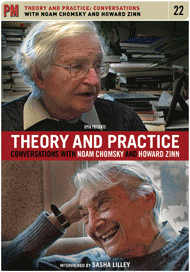The White House has a Posse
So Bush is talking about having the Pentagon take care of domestic emergency situations like Katrina. Like a lot of lefties, my immediate response was (in unison, now): "What about Posse Comitatus?" For those of you scratching your head, that's the law from 1878 that says:
Basically, the state can't use the military against the domestic population, they have to use the police. If you go to protests and the army is doing security, a lot of people raise this and I've always been of mixed feeling of this critique. It always feels like there is a hint of "It is bad enough that the military is used on foreign people, but how dare they use them on us!"
So I went and looked up Posse Comitatus. Turns out, Posse Comitatus is pretty much done. If you read federal regulation 32CFR501.4, they talk about the armed forces can be declared by both the president and local authority. They just have to "weigh every proposed action against the threat to public order and safety it is designed to meet, in order that the necessity therefor may be ascertained." Not only that, but the Homeland Security act of 2002 pretty much says that it is all gravy for the president to disregard Posse Comitatus, for terrorism or insurrection.
Which brings to mind Jefferson. Don't think that we at History Is A Weapon have forgotten that Jefferson was a slave-owning racist. But he did point out that the Tree of Liberty must "be refreshed from time to time with the blood of patriots & tyrants. it is it's natural manure." Further, he added that the solution wasn't repression, but "the remedy is to set them right as to facts, pardon & pacify them. what signify a few lives lost in a century or two?"
Which isn't great, because Jefferson betrays that he thinks the cause of rebellion is that the rebels are just children who need to be informed. But he also gets the importance of dissent itself: "God forbid we should ever be 20 years without such a rebellion. the people cannot be all, & always, well informed. the past which is wrong will be discontented in proportion to the importance of the facts they misconceive; if they remain quiet under such misconceptions it is a lethargy, the forerunner of death to the public liberty."
Now perhaps I, too, am buying into the mythology of the state. For Jefferson, he clearly wasn't addressing women, people of color, or the white indentured. No, his liberty is the liberty of the democratic slave state that Tony Bogues outlines so well. Like the Romans who proclaim that Rome will always be a free state, free for the masters. But is it a step better than Bush who shows up with a list of all three thousand positions in the government that he can fill without oversight and fills all of them with people who will obediently execute his coterie's agenda?
Some Links
Wikipedia's List of U.S. military history events
The Myth of Posse Comitatus by Major Craig T. Trebilcock, U.S. Army Reserve (Written in October 2000)
Whoever, except in cases and under circumstances expressly authorized by the Constitution or Act of Congress, willfully uses any part of the Army or the Air Force as a posse comitatus or otherwise to execute the laws shall be fined under this title or imprisoned not more than two years, or both.
Basically, the state can't use the military against the domestic population, they have to use the police. If you go to protests and the army is doing security, a lot of people raise this and I've always been of mixed feeling of this critique. It always feels like there is a hint of "It is bad enough that the military is used on foreign people, but how dare they use them on us!"
So I went and looked up Posse Comitatus. Turns out, Posse Comitatus is pretty much done. If you read federal regulation 32CFR501.4, they talk about the armed forces can be declared by both the president and local authority. They just have to "weigh every proposed action against the threat to public order and safety it is designed to meet, in order that the necessity therefor may be ascertained." Not only that, but the Homeland Security act of 2002 pretty much says that it is all gravy for the president to disregard Posse Comitatus, for terrorism or insurrection.
Which brings to mind Jefferson. Don't think that we at History Is A Weapon have forgotten that Jefferson was a slave-owning racist. But he did point out that the Tree of Liberty must "be refreshed from time to time with the blood of patriots & tyrants. it is it's natural manure." Further, he added that the solution wasn't repression, but "the remedy is to set them right as to facts, pardon & pacify them. what signify a few lives lost in a century or two?"
Which isn't great, because Jefferson betrays that he thinks the cause of rebellion is that the rebels are just children who need to be informed. But he also gets the importance of dissent itself: "God forbid we should ever be 20 years without such a rebellion. the people cannot be all, & always, well informed. the past which is wrong will be discontented in proportion to the importance of the facts they misconceive; if they remain quiet under such misconceptions it is a lethargy, the forerunner of death to the public liberty."
Now perhaps I, too, am buying into the mythology of the state. For Jefferson, he clearly wasn't addressing women, people of color, or the white indentured. No, his liberty is the liberty of the democratic slave state that Tony Bogues outlines so well. Like the Romans who proclaim that Rome will always be a free state, free for the masters. But is it a step better than Bush who shows up with a list of all three thousand positions in the government that he can fill without oversight and fills all of them with people who will obediently execute his coterie's agenda?
Some Links
Wikipedia's List of U.S. military history events
The Myth of Posse Comitatus by Major Craig T. Trebilcock, U.S. Army Reserve (Written in October 2000)





